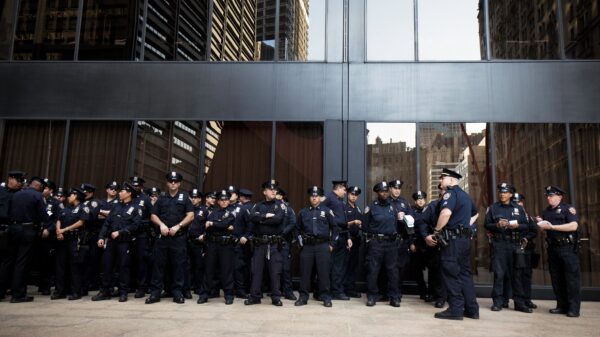- Publications >
- Report
Towards Accountability: Overcoming LAPD’s Flawed Disciplinary Process
Document Date: November 29, 2018
How does a city effectively discipline its police?
Los Angeles, home to one of the largest police forces in the nation, has struggled with this question for decades, and has yet to settle on an answer that regularly ensures that officers who commit serious misconduct receive serious discipline.
The Los Angeles Police Department gained notoriety for scandals that, at their core, were caused by its failure to properly discipline officers and take allegations of misconduct seriously. Perhaps its most significant scandal was the beating of Rodney King by three LAPD officers on March 3, 1991.
Before the infamous amateur video of the police beating of Rodney King surfaced, two separate witnesses contacted the LAPD and attempted to report the incident and file a complaint. The Department rebuffed both of their efforts. When news stations broadcast the video to the public, even then-president George Bush described the officers' conduct as "sickening."
The public outcry over the officers' conduct led then-L.A. Mayor Tom Bradley to create the Independent Commission (aka the "Christopher Commission") to investigate excessive force within the LAPD. The Christopher Commission identified a number of causes for the pervasive use of excessive force within the Department, but the linchpin of this unchecked violence was its ineffective disciplinary process. And central to that disciplinary process was the Board of Rights — the disciplinary appeals board for the LAPD that has the ultimate say in officer discipline.
The disciplinary process for LAPD officers is long and complex, but for the most serious misconduct, the process ends with the Board of Rights. Any discipline starts with a complaint filed against an officer — either by the public or another LAPD employee — for violating LAPD policy. Internal affairs and the officer's supervisor investigate complaints. If the officer used deadly force, the Inspector General's Office and the LAPD Police Commission will also weigh in on whether it believes the officer's conduct violated Department police. If anyone during the review process determines that the facts don't support the allegation, or that the conduct only deserves a very minor penalty, the process stops. But when the internal process determines that the officer did violate policy and that he or she deserves a significant penalty, the case is referred up to the chief of police.
If the chief reviews the investigative file and agrees that the officer is not only guilty but deserves a lengthy suspension, demotion, or to be fired, the officer gets to challenge this penalty with the Board of Rights — a three-person panel that currently includes 2 officers and 1 civilian. The Board of Rights is not bound to the Department's factual findings or disciplinary recommendations. Instead, the three members independently determine whether an LAPD officer should receive the chief's recommended punishment, or any punishment at all. The Board of Rights therefore has tremendous power in determining whether LAPD officers ultimately are held accountable for wrongdoing.
This report re-examines the analyses presented in prior reports and draws connections across the data spanning almost thirty years. This report also supplements previous analyses by providing context available from public discourse around the Board of Rights — including City Council actions — and with publicly-available disciplinary data. It concludes by highlighting recommendations that have gone unheeded, and, with input from community partners, supplements with additional recommendations directly in response to these identified needs.
In March 2017, Los Angeles voters approved Charter Amendment C, which mandated that the City Council adopt an ordinance changing the existing Board of Rights system to give officers the option of an all-civilian review. The City Council also created an Ad Hoc Committee on Policing, purportedly tasked with providing a public process for investigating the failings of the current system and improving LAPD discipline. While the City Council is free at any time to make changes to the Board of Rights or other elements of the LAPD disciplinary system, it is explicitly tasked with doing so right now.
This report and the series of recommendations it proposes, should inform the City Council's next steps towards meaningfully improving LAPD discipline.
As one of the post-Rampart reports, commissioned by the LAPD officers' union and authored by Prof. Erwin Chemerinsky recognized, "[t]here never will be public confidence in the Police Department until there are major reforms in the disciplinary system. Officer confidence in the system is equally important. There thus must be major reforms of every aspect of the disciplinary system to provide a fair and just system of receiving, investigating, and adjudicating complaints against officers." If the LAPD disciplinary system remains dependent on the Board of Rights to impose serious discipline, finally adopting these needed changes is a crucial part of this reformation process.
Read the full report: "Towards Accountability: Overcoming LAPD’s Flawed Disciplinary Process"
Related Issues
All Documents
Related Content

- Police Practices
Civil Rights Groups Demand Reforms to LAPD Disciplinary Process

- Police Practices
The LAPD's Board of Rights Is The Most Important Body You May Have Never Heard Of
Stay Informed
Sign up to be the first to hear about how to take action.
By completing this form, I agree to receive occasional emails per the terms of the ACLU’s privacy statement.
By completing this form, I agree to receive occasional emails per the terms of the ACLU’s privacy statement.
